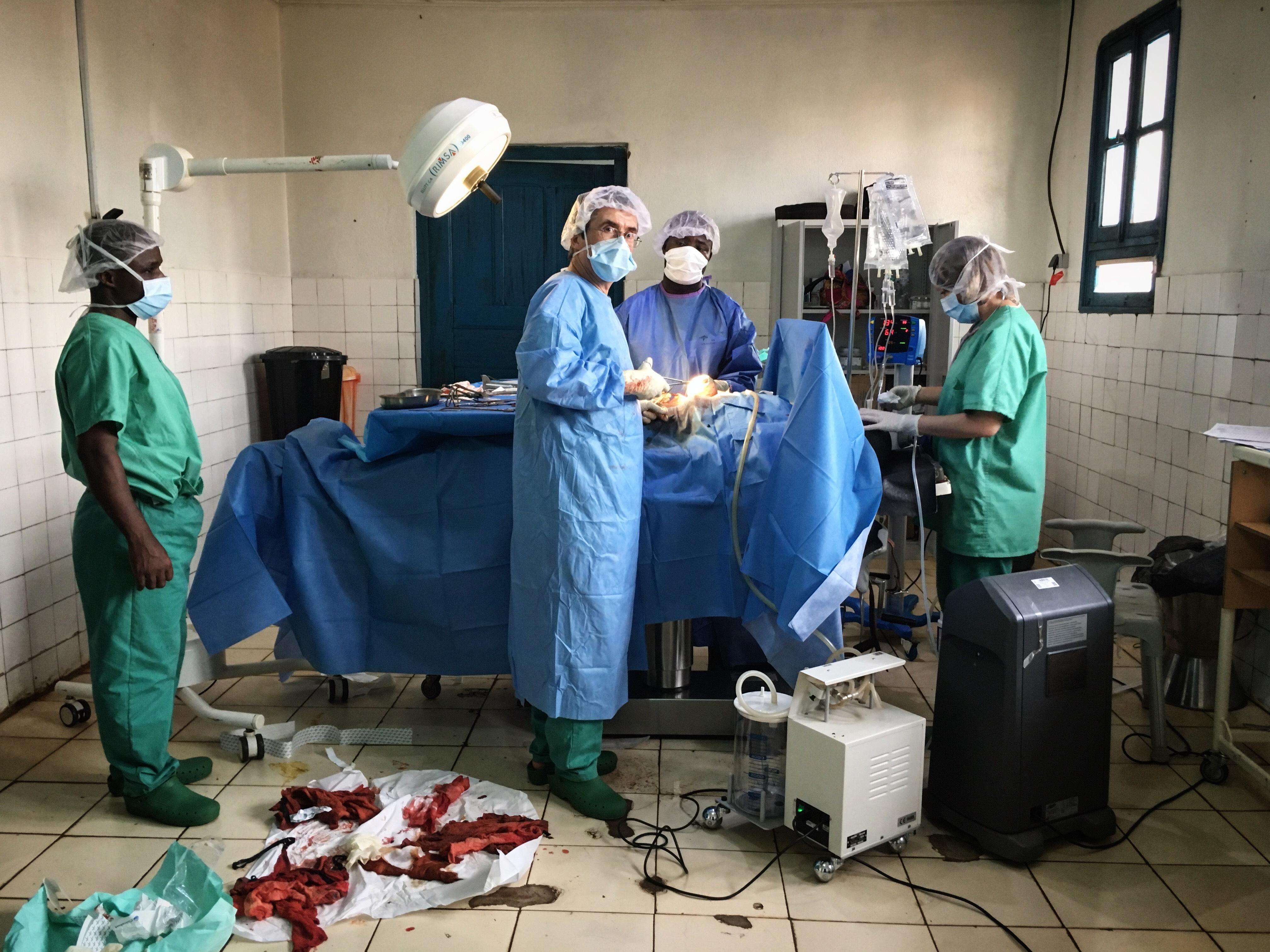Doctors Without Borders/Médecins Sans Frontières (MSF) teams witness summary executions and other tactics to terrorize civilians
BANGUI, CENTRAL AFRICAN REPUBLIC/NEW YORK, APRIL 12, 2017—As conflict spreads and intensifies in the Central African Republic (CAR), civilians are being attacked at levels not seen in years, especially in the east-central area of the country, the international medical humanitarian organization Doctors Without Borders/Médecins Sans Frontières (MSF) warned today.
Thousands are being forced to flee for their lives and are receiving little to no humanitarian assistance.
"Our teams have witnessed summary executions and have found mutilated bodies left exposed to terrorize populations," said René Colgo, MSF deputy head of mission, who leads MSF's work in the Bakouma and Nzako areas of Mbomou prefecture. "Civilians are traumatized and many have fled to the bush where they are surviving on whatever they can find."
In the past few months, infighting among parties from the 2014–2015 conflict has resulted in splinter groups and has triggered a conflict for control of territory and resources, especially in the Ouaka, Haute Kotto, Basse Kotto and Mbomou prefectures.
"What was already one of the most acute humanitarian crises in the world is worsening," said Emmanuel Lampaert, MSF representative in CAR. "The Central African Republic is spiraling into levels of violence that have not been seen since the peak of the conflict in 2014."
The conflict is spreading to areas that had been considered relatively stable for the past two years. In Bakouma and Nzako, rival armed groups are contesting towns and mining areas, with devastating consequences for the civilian population.
When cities change hands, civilians are the first to suffer. In Bria pediatric hospital, for example, MSF teams have treated 168 people for violence-related injuries since November, including two dozen people with serious injuries from March 24 to 26.
"The MSF facility in Bria is a rural children's hospital where we mostly treat toddlers with malaria," said Dr. Katie Treble, an MSF physician working there at the time. "The hospital’s small triage area was overwhelmed with patients, all with severe gunshot wounds . . . During this weekend, the whole team—nurses, doctors, health care assistants, cleaners, everyone—had to suddenly function like an adult trauma center in the middle of a war zone."
Read More: "Our Pediatric Hospital Had to Suddenly Function as an Adult Trauma Center"
In recent months there has also been an increase in the number of targeted attacks by armed groups against specific communities, which leads to retaliation and a quick escalation of violence.
"The nature of the conflict is evolving, and traumatized and helpless civilians find themselves trapped in the crossfire, kicked out of their homes, and cut off from their fields and livelihoods," said Caroline Ducarme, MSF head of mission in CAR. "At the very least all parties need to stop attacking noncombatants and allow a minimum of assistance to reach those in desperate need."
According to the United Nations (UN) Office for the Coordination for Humanitarian Affairs (OCHA), half the 4.6 million people living in CAR rely on humanitarian assistance. An additional 100,000 people were displaced between September 2016 and February 2017 due to the renewed fighting, bringing the total number of people internally displaced to over 400,000 and the total number of registered refugees to over 460,000. However, international funding for the UN humanitarian response plan is sorely lacking.
MSF has worked in the CAR since 1997, delivering emergency medical care to those most in need across the country. In 2016, MSF provided 947,000 medical consultations (in a country of 4.6 million people), treated 580,000 people for malaria, administered 490,000 vaccines, and assisted over 21,000 births. MSF relies 100 percent on private donors to fund its work in CAR.




